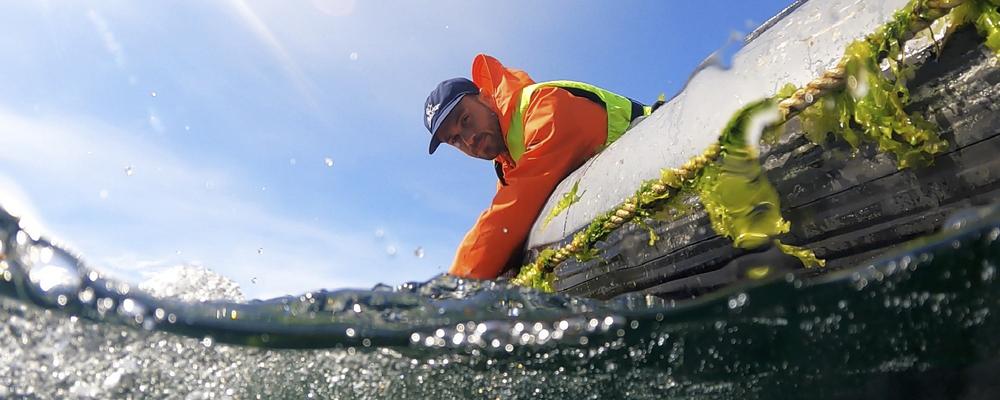In December last year, Kristoffer Stedt defended his dissertation with a thesis on the importance of macroalgae as future food. Part of the thesis showed how the protein content of algae can be significantly increased by growing them in waste water from the food industry. It is this work that is now praised by the king.
"It feels great to get attention for something you've worked on for the past four and a half years. It also feels right on time. We need to review how we produce food, and algae is an unused resource", says Kristoffer Stedt, researcher at the Department of Marine Sciences.
Industrial water increases the protein content
To feed the earth's growing population, food production needs to increase. A figure that is usually mentioned is 60 percent higher production in 2050 compared to 2010. Here, cultivated macroalgae could be a valuable addition, but their relatively low protein content is a challenge.
Because even though it is possible to harvest very large amounts of algal biomass per surface unit, the protein content is quite low, 10-20 percent dry weight compared to, for example, soybeans' 40 percent.
"But by growing the algae in nutrient-rich waste water from, for example, the herring industry, you can increase their protein content. In our trials with sea lettuce, Ulva fenstrata, the protein content rose to 30–37 percent", says Kristoffer Stedt.
Scaling up and new species
Kristoffer Stedt hopes to be able to use the royal grant of SEK 100,000 to scale up the cultivation trials. Ideally, he wants to build up a cultivation in direct connection with one of the west coast's processing industries in order to get larger volumes and also see what happens over time. Testing new species is also high on the list, preferably the red alga dulse, Palmaria palmata, which is naturally rich in protein and is considered very tasty.
"The interest in eating vegetarian is increasing and if we only succeed in extracting the protein in an efficient way, you can do anything; seaweed burgers and other mince products. Personally, I think that a minced meat based on algae grown on the Swedish west coast and which also takes up excess nutrients from the water, can be a positive alternative for many consumers."
Text: Susanne Liljenström


